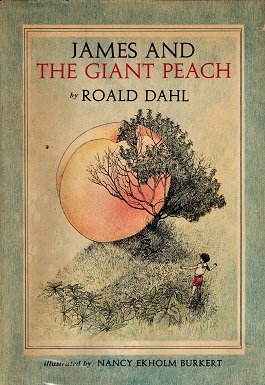Henrik Pontoppidan
Explore the detailed timeline of Henrik Pontoppidan, the Danish Nobel Prize-winning author. Discover key events, literary milestones, and personal achievements throughout his life in this comprehensive overview.
Birth of Henrik Pontoppidan
Henrik Pontoppidan was born on July 24, 1857, in Fredericia, a town in Denmark. He was the son of a Protestant minister, which influenced his upbringing and later work. Pontoppidan would become one of Denmark's most famous authors, critically examining Danish society in his writings. His work often dealt with themes of social change, democracy, and the struggles of individuals within society. Pontoppidan's extensive literary career would eventually earn him significant recognition, including the Nobel Prize in Literature.
Pontoppidan Begins Writing Career
Henrik Pontoppidan began his writing career in earnest in 1879, having abandoned his earlier technical studies. Driven by his desire to engage with the social issues of the time, Pontoppidan turned to literature as his primary means of expression. His early works often dealt with themes of social reform and personal freedom, and he quickly gained recognition for his critical approach to the existing social order. His stories and novels would continue to reflect his interest in the complexities of human nature and society.
Publication of The Night Watch
In 1883, Henrik Pontoppidan published "The Night Watch" (Danish: "Nattevagt"), marking one of his early and significant contributions to Danish literature. The novel featured themes that would become hallmark characteristics of Pontoppidan's later works, such as the critique of bourgeois society and the exploration of individual freedom. This work demonstrated Pontoppidan's capacity to weave personal narratives with broader social commentary, establishing his voice as a critical observer of his time. "The Night Watch" helped cement his reputation as an important literary figure in Denmark.
Publication of From the Firing Line
"From the Firing Line" (Danish: "Fra Hytterne") is a novel by Henrik Pontoppidan published in 1890. It is part of his "Rural Trilogy" which examines the conditions and social dynamics of rural Denmark. In this novel, Pontoppidan explores the lives of the rural poor and the impact of economic and social change on traditional communities. His realistic depiction of rural life and the tensions between progress and tradition are evident throughout the work, showcasing his skill in capturing the complexities of societal shifts.
Publication of Lucky Per
"Lucky Per" (Danish: "Lykke-Per") is one of Henrik Pontoppidan's most important novels, first published between 1898 and 1904 in eight volumes. The novel follows the life of Per Sidenius, an ambitious man from a strict religious background who seeks to find his fortune and happiness in a rapidly modernizing Denmark. "Lucky Per" addresses issues of identity, ambition, and the conflicts between personal desires and societal expectations. It is considered a major work of Danish literature and showcases Pontoppidan's style of social realism and psychological insight.
Publication of Emanuel, or Children of the Soil
In 1898, Henrik Pontoppidan published "Emanuel, or Children of the Soil" (Danish: "Muld: Fortælling"), a novel that reflects his interest in the lives of rural communities in Denmark. This work highlights the struggles and changes faced by the rural population during a time of significant social and economic transformation in the country. Pontoppidan's attention to detail and realistic portrayal of Danish society earned him a reputation as a significant realist writer. "Children of the Soil" is considered one of the key works that exemplifies Pontoppidan's literary exploration of social issues.
Completion of Lucky Per
Henrik Pontoppidan completed his most famous novel, "Lucky Per" (Danish: "Lykke-Per"), in 1904, after six years of serialized publication. The work is an in-depth exploration of the clash between tradition and modernity in Denmark at the turn of the 20th century, focusing on the protagonist Per Sidenius's personal journey. The novel critiques established societal norms and exposes the psychological struggles of its characters, offering profound insights into the spirit of the age. It remains a cornerstone of Pontoppidan's legacy and an essential part of the Danish literary canon.
Awarded Nobel Prize in Literature
Henrik Pontoppidan was awarded the Nobel Prize in Literature in 1917, which he shared with fellow Danish writer Karl Gjellerup. The Nobel Prize was awarded to Pontoppidan for his "authentic descriptions of present-day life in Denmark." His works were recognized for their critical realism and ability to portray the societal and moral challenges of his time. This accolade placed him among the most prominent literary figures in Denmark and highlighted his contributions to literature as a means of social commentary and reflection.
Publication of The Realm of the Dead
"The Realm of the Dead" (Danish: "De Dødes Rige") was published by Henrik Pontoppidan in 1922. This novel, significant for its exploration of spiritual and existential themes, reflects Pontoppidan's shift from focusing solely on social issues to delving into inner life and philosophical questions. The narrative examines the lives of individuals confronting moral and existential dilemmas, revealing Pontoppidan's evolving literary focus later in his career. The book is considered a profound examination of the human condition and existential questions relevant to life in a modernizing world.
Death of Henrik Pontoppidan
Henrik Pontoppidan passed away on August 21, 1943, in Ordrup, Denmark. He left behind a significant body of work that greatly influenced Danish literature. Known for his realism and keen societal observations, Pontoppidan's writings remain a critical examination of the societal structures and moral questions of his time. His impact on literature, especially Norwegian literature, persists, as his works continue to be studied for their insight into human nature and society. His death marked the end of an era in Danish literature defined by his and his contemporaries' works.
Frequently asked questions about Henrik Pontoppidan
Discover commonly asked questions regarding Henrik Pontoppidan. If there are any questions we may have overlooked, please let us know.
What are some of the major works of Henrik Pontoppidan?
When was Henrik Pontoppidan awarded the Nobel Prize, and for what reason?
Who was Henrik Pontoppidan?
What influence did Henrik Pontoppidan have on Danish literature?
Related timelines
More timelines connected to Henrik Pontoppidan







